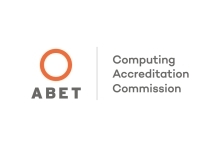

GR
Data Science, Master of Science (M.S.)
With a Master of Science degree in Data Science, you join a promising field where your skills as a data scientist will be sought after to analyze data, develop predictive models, and drive informed decision making.
- Home
- Academics
- Majors and Programs of Study
- Data Science, Master of Science (M.S.)
A High-Demand Field With Growth Opportunities
Ignite your data science career with a cutting-edge curriculum that provides you with skills in machine learning, big data, and data visualization. Gain insight from top industry experts and dive into real-world projects. Our M.S. in Data Science offers coursework in topics such as database management systems, data mining and machine learning algorithms, data visualization, statistics, text analytics, and big data. Graduates of the Data Science program will obtain a variety of skills required to analyze large datasets and to develop modeling solutions to support decision making. Join our network and fast-track your path to high-demand roles in data science, artificial intelligence and machine learning!
Ready to build a career in Data Science? Enroll now and take the first step toward your future.
- Degree Type
- MS
- Area of Interest
- Computing & Technology
- Associated Colleges or Schools
- Program Location
- Queens Campus
- Required Credit Hours
- 30
Contact Us
We are here to answer your questions about the Data Science program and admission process.
Please contact:
Justin Goldberg
Graduate Assistant Dean
[email protected]
Program Director
Dr. Fazel Keshktar

Recognized Excellence
ABET Accrediated
The Cyber Security Systems, M.S. program is accredited by the Computing Accreditation Commission of ABET, under the commission’s General Criteria, with no applicable program criteria.
Degree Requirements
The M.S. program in Data Science requires 30 credits that include the following:
Core Courses (9 credits required)
- CUS 510 Database Management Systems
- CUS 610 Data Science Concepts and Methods
- CUS 752 Machine Learning
Data Analysis/Applied Statics Courses (6 credits chosen from the following)
- BUA 609 Advanced Managerial Statistics
- BUA 633 Predictive Analytics and Forecasting Models
Elective Courses (6 credits in one of the following areas)
- CUS 620 Introduction to Programming for Analytics
- CUS 625 Data Visualization Programming
- CUS 640 Natural Language Processing and Large Language Models
- CUS 680 Distributed Big Data Analytics I
- CUS 681 Distributed Big Data Analytics II
- CUS 725 Advanced Database Management Systems
- CUS 756 Deep Learning Models in Machine Learning & Generative AI
- BUA 610 Data Visualization Applications
Capstone Course
- CUS 690 Applied Analytics Project
Specialization (6 credits in one of the following areas):
- Big Data
- CUS 680 Distributed Big Data Analytics I
- CUS 681 Distributed Big Data Analytics II
- Cyber and Information Security
- CYB 611 Foundations in Cyber Security
- CYB 615 Protection of Digital Infrastructure
- CYB 621 Cybersecurity Laws, Regulations, and Best Practices
- CYB 625 Principles of Secure Scripting and Cryptography
- CYB 711 Intrusion Detection and Analysis
- DFR 711 Cyber-Forensic and Malware Analysis
- Healthcare Analytics
- HCI 520 Medical and Health Informatics
- HCI 525 Applied Healthcare Analytics
- Marketing Analytics
- MKT 600 Decisions in Marketing Management
- MKT 611 Data-Driven Marketing
Program at a Glance
Specializations include Big Data Analytics, Cyber and Information Security, Healthcare Analytics, Marketing Analytics
Degree Credits Required
months (full-time)
Estimated Time To Complete
Evening Courses Available
Program Educational Objectives
The Program Educational Objectives for the M.S. degree in Data Science are that within a few years after graduation, graduates are expected to:
- Develop and use data science applications in industry or research.
- Develop data science applications for use in a variety of domains.
- Continue learning and professional development to remain current in data science and computing topics.
- Contribute to the field of data science and society as an entrepreneur, innovator, or researcher.
Student Outcomes
Graduates of the program will have the ability to:
- Analyze a complex problem and apply principles of computing and other relevant disciplines to elaborate students to it.
- Design, implement, and evaluate a computing-based solution to meet a given set of requirements in the context of the program's discipline.
- Communicate effectively in a variety of professional contexts.
- Recognize professional responsibilities and make informed judgements in computing practice based on legal and ethical principles.
- Function effectively as a member and leader of a team engaged in activities appropriate to the program's discipline.
Admission Requirements
All applicants must possess a bachelor’s degree from an accredited institution or the international equivalent before enrollment at the graduate level. In addition to the application form and non-refundable application fee, candidates should submit the following:
- Statement of professional goals and resume, which can be uploaded as part of the application for admission.
- Official transcripts from all undergraduate, graduate, and professional schools attended.
- One letter of recommendation obtained from a professional or academic reference.
- Sufficient previous coursework in calculus/statistics or equivalent mathematics courses.
- Official TOEFL, IELTS, PTE or Duolingo scores are required for applicants whose native language is not English.
- Students with international credits must submit a course-by-course foreign credit evaluation with GPA calculation from a NACES member.
For additional information, please contact:
Office of Graduate Admission
[email protected]
718-990-1601


Shiqi Chen ’18MS
“Transitioning from a medical background to the field of data science was a significant turning point in my career. The inclusive and diverse environment at St. John’s University provided me with the opportunity to pursue my passion for data science, despite coming from a nontraditional background. Since completing the M.S. program, I have witnessed significant growth in my career as a data scientist.”

Peter Tadrous ’20CCPS, ’21GCCPS
“The Data Science program at St. John’s has been instrumental in equipping me with robust skills in statistics, data wrangling, and data visualizations. The program inspired me to see the malleability of data and how I can shape it into meaningful insights. The educators at St. John’s have fueled my curiosity and propelled a continual journey of discovery in data science.”

Brad Rose ’20MS
“I was thankfully able to use my military benefits to continue my higher education at St. John’s, which led to employment in the fintech industry at J.P.Morgan. I did so late in life; it’s never too late to get an education. For those of you who are getting one early, remember how fortunate you are to have the support structure and ability to do so.”
Potential Careers by Specialization
- Big Data Engineer
- Business Intelligence Analyst
- Data Analyst
- Data Architect
- Data Mining Specialist
- Data Scientist
- Machine Learning Engineer
- Malware Analyst
- Security Analyst
- Security Architect
- Security Data Scientist
- Security Engineer
- Security Operations Center (SOC) Analyst
- Threat Intelligence Analyst
- Healthcare Analytics Manager
- Healthcare Business Intelligence Analyst
- Healthcare Data Analyst
- Healthcare Data Scientist
- Healthcare Informatics Specialist
- Healthcare Predictive Modeler
- Customer Insights Analyst
- Digital Marketing Analyst
- Marketing Analyst
- Marketing Data Strategist
- Marketing Operations Manager
- Marketing Research Analyst
- Marketing Strategy Consultant

The Institute for Data Science
The Institute for Data Science at St. John’s University serves as a hub for research activities, with an emphasis on data mining and analytics. Researchers explore opportunities for data science initiatives among disciplines within The Lesley H. and William L. Collins College of Professional Studies and across the University.

AI Evolution: What is a Large Language Model?
Many people use Artificial Intelligence (AI) chatbots like ChatGPT and Gemini. They give you the answers you want without doing an extensive deep dive through a Google search. But have you ever wondered what a large language model is and how it can generate such excellent responses?
Events and Seminars
Explore upcoming events and seminars featuring top industry professionals and student networking opportunities.
Wednesday, May 3rd, 2023
Data Science Alumni Career Panel
Click here to view the flyer!
AI Opportunities
Break Through Tech AI Program (Cornell University)
Break Through Tech, an initiative of Cornell University, offers a free, virtual, one-year extracurricular AI program for students interested in artificial intelligence, machine learning, and data science. Participants build foundational skills over the summer, work on real industry projects during the academic year, and gain hands-on experience with industry-standard tools—along with mentorship, career coaching, and internship support.
Applications are now open for the 2026–2027 academic year and close on February 16, 2026. Participants earn a Machine Learning certificate from Cornell University and receive a financial award upon completing the program.
Click here to apply.
AI4ALL IGNITE
AI4ALL Ignite is a career accelerator program offered at no cost to students, equipping you with in-demand, hands-on technical skills for AI internships and early career roles. You'll gain industry connections, industry-specific career readiness guidance, a certificate of completion, and a responsible, human-centered approach to AI.
Click here to apply.
Meet Our Faculty






AWS (Amazon Web Services) Academy Member Institution
M.S. Data Science students have obtained AWS Cloud Foundation certification through the distributed big data courses.
Databricks University Alliance Member
IBM AI Alliance Member
Interested in Computing & Technology , but not sure if Data Science, Master of Science (M.S.) is right for you?
Related Programs
UG
The minor in computer science is an option that provides students an opportunity to supplement or enhance their major program with computer science coursework and additional mathematics courses.
- Queens Campus
UG
Gain a strong foundation in the theory and practice of computer science, exploring areas such as software development, artificial intelligence, computer architecture, and more, to prepare for careers in the industry and further graduate study.
- Queens Campus
GR
The MS in Computer Science program offers specialization in Artificial Intelligence, Data Science, and Cyber Security which focuses on current state-of-the-art technologies and applications, that can help you develop the skills necessary to join an AI-driven economy of the future.
- Queens Campus
UG
For highly-motivated students, St. John’s College of Liberal Arts and Sciences offers a combined Bachelor of Science (B.S.) and Master of Science (M.S.) program in Computer Science and Library and Information Science. The program allows you to complete your undergraduate and graduate degrees in five years of full-time study.
- Queens Campus
UG
The Department of Mathematics and Computer Science is dedicated to the preparation of students for a dynamic future. Our faculty develop curricula that will challenge your curiosity, employ your inventive facilities, and allow you to enjoy the triumph of discovery. We follow Euclid's rigorous approach to mathematics while exploring modern topics like sustainability.
- Queens Campus
UG
Equipped with cutting-edge technologies, our program empowers students to excel in creating immersive worlds, positioning them as the next generation of visionary game developers and leaders in emerging media.
- Queens Campus
Take the Next Step

Explore Affordability
The Office of Student Financial Services is committed to providing students and their families with the information they need to navigate and understand the financial aid and payment process.
Apply to St. John's
St. John’s offers a free online application for all 100+ undergraduate programs, and graduate applications carry a low cost for most programs.
